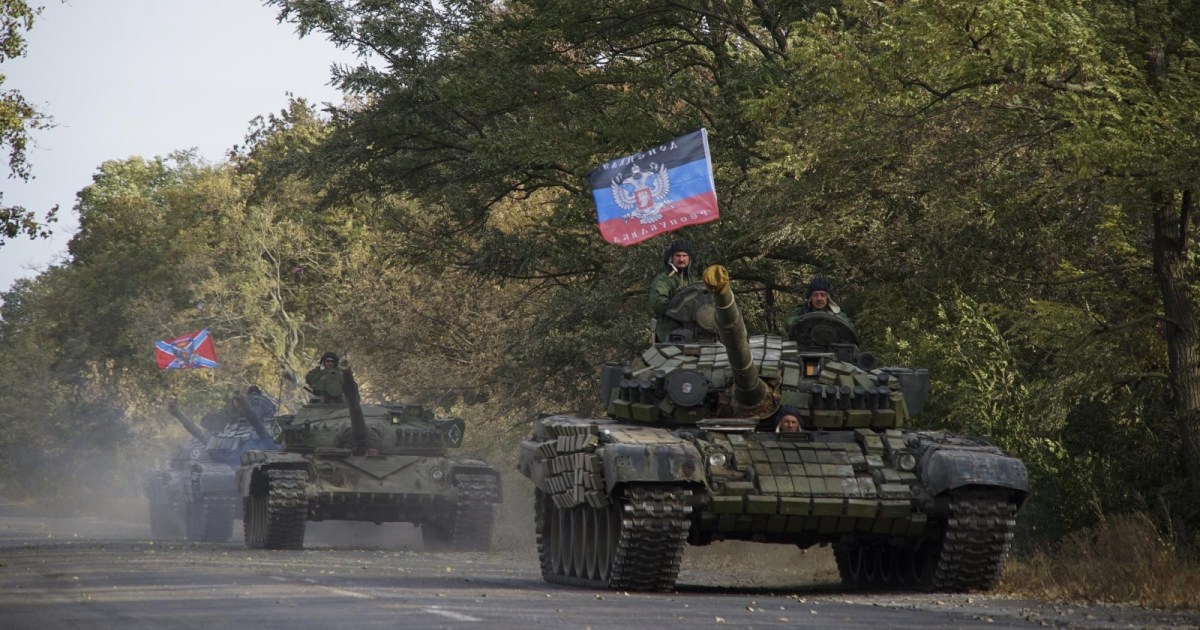A report in the American newspaper (New York Times) stated that Russia is witnessing popular movements across the country to collect donations for the Russian fighting forces in Ukraine and supply them with their basic needs, such as: food, medicine and clothing.
The newspaper said - in a report prepared by the director of its Moscow office, Anton Troyanovsky - that these campaigns are evidence that Russian President Vladimir Putin's war efforts have some popular support, and also reflect the growing awareness of the Russian people that their army - which the Russian leadership before the invasion of Ukraine boasted was a force World-class combat - unprepared for a major conflict.
The report pointed out that the assistance provided by Russian citizens to their military personnel in Ukraine is not limited to sweets and other foodstuffs, clothes and inspiring messages to raise the morale of the soldiers, but also includes imported drones, night vision goggles and medical equipment, and these are the most popular and important items, Which indicates that the Russian defense budget - which amounts to about 66 billion dollars - has not succeeded in producing essential equipment for modern wars.
The newspaper cited brief interviews with some of those campaigners led by women, including Tatiana Plotnikova, a businesswoman with a company in the Volga city of Novokobyshevsk, who said in a telephone interview, "No one expected such a war, I think it was not Nobody was ready for this."
According to the New York Times, Plotnikova (47 years old) has traveled the 1,000 miles that separates her town from the Russian-Ukrainian border twice, and delivered a total of 3 million tons of aid to her country's forces, and last week published on Russian social networking a new list of items that are the soldiers' need. These include bandages, anesthetics, antibiotics, crutches and wheelchairs.
Severe shortage of medical equipment
The report pointed out that the demand for medical equipment is very high, partly due to the powerful weapons used by the Ukrainian army in the fighting, as Western countries have supplied it with advanced weapons since the beginning of the war.
And the report quoted Alexander Borody (a separatist leader and a member of the Russian parliament) as saying - in a telephone interview with the newspaper - that the materials needed to treat wounds and burns caused by shrapnel are required "in large quantities" on the Russian side of the front.
He explained that more than 90% of the injuries in the ranks of the Russian forces observed recently in some areas are caused by artillery fire.
Borody said his army units had noticed the Ukrainian army's use of 155mm shells fired from US howitzers, and that the Russian leadership may have underestimated the West's determination to support Ukraine militarily.
Borody admitted that Western arms shipments to Ukraine slowed down the military operation and made the situation more difficult for the Russian army, adding that "it is possible that our military leaders were not prepared for such massive (military) support from the West."
The New York Times highlighted that most of the groups that are active in collecting donations to help Russian forces in Ukraine operate independently, and do not appear to have anything to do with the Russian government.
It relies mostly on the personal contacts of volunteers in army units and military hospitals who pass along lists of things they need most.
She noted that Russian state media rarely mention the activities of these groups, which may be because their activities undermine the official narrative that the Kremlin is in control of the war.

